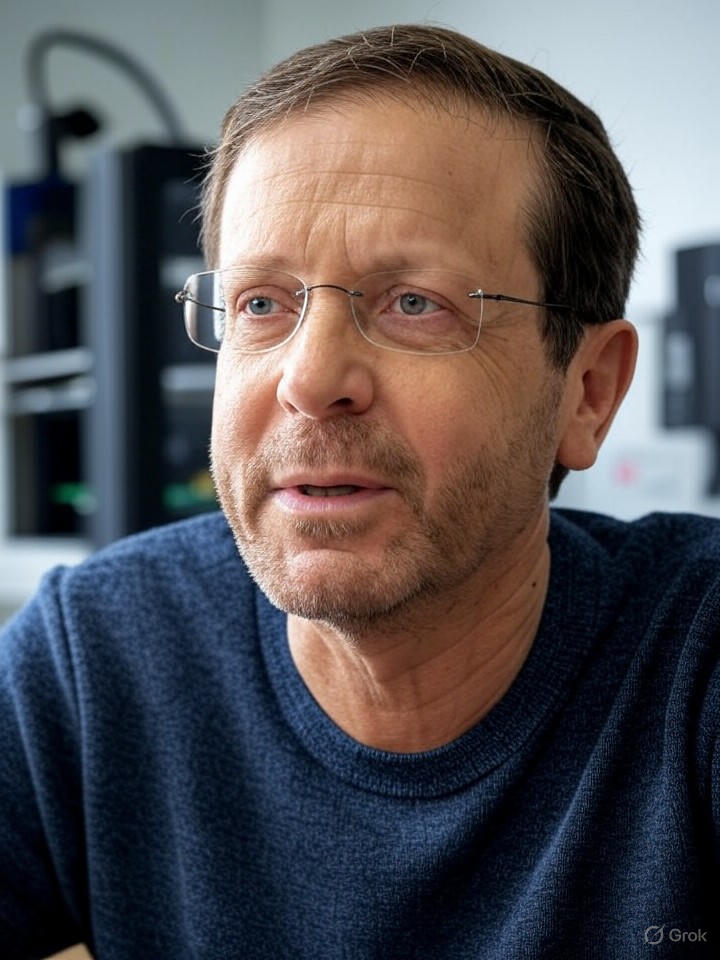In an ambitious effort to establish itself as a leader in medical innovation, Israel has launched a new research institute focused on the advancement of 3D printing for human organs, artificial intelligence (AI) applications in healthcare, and medical robotics. Announced by President Isaac Herzog during a ceremony at the President’s Residence in Jerusalem, this initiative aims to address critical healthcare challenges, including organ shortages and the need for personalized medicine.
Collaborative Nexus for Innovation
The institute is designed to be a collaborative hub for academia, industry, and government, fostering the development of technologies that could transform transplant procedures and diagnostic tools. According to a report from the Times of Israel, this new facility builds on Israel’s rich history in bioengineering, where researchers have made significant strides in regenerative medicine. A notable example includes the creation of the world’s first 3D-printed heart at Tel Aviv University in 2019, which utilized a patient’s own cells to form a working prototype.
This prototype, equipped with blood vessels and chambers, hinted at a future where custom organs could potentially eliminate waitlists and lower the risks of organ rejection. Nonetheless, scaling these innovations to functional human sizes presents ongoing challenges.
Integrating AI and Robotics
Today, the institute’s mission includes accelerating the integration of AI into the organ printing process to enhance data analysis capabilities. This will facilitate the development of predictive models for organ viability and surgical outcomes. Industry experts highlight that this convergence of disciplines—often referred to as bio-convergence—has the potential to lead to breakthroughs in creating viable tissues that integrate seamlessly with the human body.
The Israel Innovation Authority has already laid the groundwork for this initiative by allocating NIS 40 million to support startups focused on bio-convergence and related fields. This funding has catalyzed ventures exploring autonomous medical robotics, including systems designed for minimally invasive surgeries. The promise of medical robotics, a key component of the institute’s mission, lies in its ability to enhance precision during procedures involving 3D-printed implants.
Recent advancements from Israeli firms such as Nano Dimension and Accellta demonstrate the capability to print human tissues within months. Coupled with AI analytics, these innovations could optimize organ designs based on genetic profiles, significantly reducing post-operative complications.
The integration of AI into the 3D printing process is also yielding transformative results. A study published in PMC last year illustrated how AI algorithms can refine 3D models to closely resemble patient-specific anatomies, which could replace outdated animal testing with highly accurate simulations. This development is particularly relevant in Israel, where ethical concerns surrounding organ printing have been a topic of discussion since the 2019 heart breakthrough.
Addressing Challenges and Global Impact
Despite the promising outlook, significant challenges remain, including regulatory hurdles and the need for scalable bioprinting materials. Recent discussions on X (formerly Twitter) among tech analysts have highlighted ongoing debates regarding intellectual property rights in AI-assisted designs. Israeli startups, many funded by the Israel Innovation Authority, are emerging as leaders in patent filings in this competitive landscape.
A recent article in Nature detailed advancements in multi-material printers that incorporate machine vision for error correction, a technique that the new institute could pioneer. Economically, this initiative positions Israel to attract billions in foreign investment, potentially surpassing competitors in Europe and the United States. As President Herzog stated, the institute will collaborate internationally, sharing AI datasets to facilitate global adoption of these innovations.
Looking ahead, experts predict that within five years, functional 3D-printed organs could enter clinical trials, fundamentally transforming healthcare delivery. The fusion of these advanced technologies may extend beyond organ fabrication to encompass personalized prosthetics and drug delivery systems.
Reports from Futures Platform suggest that 3D-printed hearts for transplant could become a reality by 2025, aligning with Israel’s ambitious timeline. Ethical frameworks will be essential to navigate concerns regarding access and equity in these groundbreaking developments. Ultimately, this institute represents a strategic leap forward, combining Israel’s technological capabilities with humanitarian objectives. By leveraging AI for data-driven insights and robotics for precise execution, it aims to address the organ crisis, potentially saving countless lives while setting new benchmarks for innovation on a global scale.
